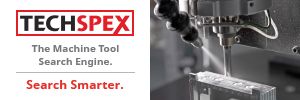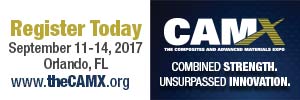Related Topics:
- Automotive Management
- Digital Domain
Mechanical design automation jumped a huge step in functionality and interoperability when EDS (Plano, TX) began shipping Unigraphics NX (NeXt), the latest version of EDS’ showcase system for CAD/CAE/CAM and a slew of other design engineering acronyms.
Is NX completely new? “Yes and no,†answers Dave Primrose, EDS’ vice president of NX product marketing. Unigraphics NX is a version upgrade from Unigraphics 18. It is also the start of the merging of two major CAD systems: EDS Unigraphics and SDRC I-DEAS, which EDS purchased in the fall of 2001. “Unigraphics NX suggests we’re embarking on a new direction,†explains Primrose. “It lets us take a lot of the technology that comes from the I-DEAS side of our house and bring that to play inside an evolving platform, rather create a complete, radically new CAD platform.â€
Migrating the two CAD systems into a single product makes users understandably nervous—not so much existing Unigraphics users, but existing I-DEAS users. The general perception is that EDS will dump I-DEAS and keep Unigraphics. That’s not going to happen. EDS very much intends to take the best of both worlds—both CAD systems. Because “perception is reality,†consider Unigraphics NX not only a version upgrade, but also as the first proof of EDS’ plans.
Added functionality
What’s new in NX falls into three groups:
The first group of changes affects the user interface. Primrose explains that EDS took a lot of the user interactions fromI-DEAS and from the experience it’s gained from EDS’ mid-range product, Solid Edge. As noted in the November 2002 Engineering Automation Report by Cyon Research Corp., “Unigraphics NX is much easier to use on a day-to-day basis. It has crossed a threshold, going from being a tool that requires a trained CAD operator, to being a tool that works for engineers.†Several things make this ease-of-use possible. One is NX’s XML-based resource bars. These bars automatically infer the correct Unigraphics actions to be performed when a user drags-and-drops an object from the resource bar to the graphics window. Users can customize these resource bars to include standard templates files for design, manufacturing, and drafting; component libraries; and user-defined features.
Unigraphics NX can directly open industry-standard JIT files, which can be viewed with the native Unigraphics geometry. This feature supports cross-platform visualization and collaboration, as long as the files are JT-compliant. And from I-DEAS, Unigraphics NX includes the Dynamic Navigator toolset for sketching wireframes.
The second group of changes in Unigraphics NX involves a healthy dose of knowledge-based engineering (KBE). With “Knowledge Fusion,†what EDS calls its knowledge engine, users can capture their company’s design rules, standards, and proprietary process knowledge, then re-use those throughout the digital product development environment. EDS starting adding KBE into Unigraphics two years ago. Now, it’s embedded throughout Unigraphics NX. KBE shows up in at least two new areas. First, KBE is in new design validation tools, such as Quick Check and Check-Mate. Quick Check ensures that design criteria, such as volume, weight, critical dimensions, and other user-defined parameters, are met when creating new designs. Check-Mate ensures that designs comply with company standards in areas such as geometry, assembly, and drawing checking. Users can add custom checks through Check-Mate Author.
Second, KBE is at the core of specialized, pre-packaged applications, called “process wizards.†As the EDS literature says, these wizards “capture industry-specific process knowledge, structure it in best-practice workflows, and link complex activities and technologies into automated sequences.†What these wizards really do is “an awful lot of computations in the background,†says Stuart McCutchen, president of the Automotive Business Solutions Group at EDS. Manually, these computations would take dozens—if not hundreds—of steps in a CAD system. The wizards, claims EDS, improve productivity 10-to-1. Unigraphics wizards can be specific to an industry, such as the Body Design Wizard for automotive, or they can cut across several verticals, such as the Die Engineering Wizard and the Weld Assistant.
The third group of changes includes advanced direct-modeling tools, such as dynamic grid section analysis for evaluating surface quality while designing products, and match edge functionality to ensure continuity across adjacent surfaces. Product design enhancements include flexible component positioning, which allows components such as belts, springs, and hoses to be positioned in different assembly configurations while being driven off of a single part number associated to a bill of material.
Multi-system access
For the time being, the NX Gateway is the bridge helping merge Unigraphics with I-DEAS. This gateway provides a seamless data exchange, including:
- Associative exchange of both geometry and assembly structure in both directions (I-DEAS to Unigraphics and vice versa);
- Direct access to I-DEAS Team Data Manager structure including project, library, part/assembly, and version information; and
- Product manufacturing information from I-DEAS into Unigraphics.
Actually, the gateway extends beyond just Unigraphics and I-DEAS; it also connects Unigraphics NX to other EDS applications including Solid Edge, I-DEAS Digital Simulation (MasterFEM), and Imageware high-end surfacing product.
In short, Unigraphics users can see the whole world of I-DEAS—from Unigraphics NX. This same capability from I-DEAS is expected in early 2003 through the I-DEAS NX Series. Eventually, NX Gateway will become obsolete when the two CAD systems are fully integrated. But for now, NX Gateway is very much in use. For about a year now, automotive systems and components supplier Air International (Port Melbourne, Australia) has been beta testing Unigraphics NX. The company has been using Unigraphics since 1991 and using I-DEAS since 1996. Because Air International uses a number of standard components between its major automotive customers, the interoperability between Unigraphics NX and I-DEAS was “important†to Anthony Carpenter, Air International’s Systems Manager. “To use that information freely between the two CAD systems—actually the three CAD systems, if we include another competitor [Catia]—makes my life as a system administrator easier.â€
That’s the i-dea, in Unigraphics NX.








